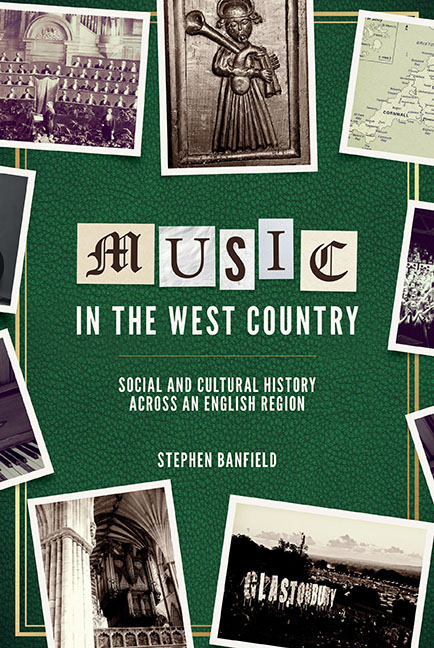Book contents
- Frontmatter
- Dedication
- Contents
- List of Illustrations
- Preface and Acknowledgements
- List of Abbreviations
- Author's Note
- 1 Landscapes and Soundscapes
- 2 Musical Authority: Organs
- 3 Musical Incorporation: Bands and Choirs
- 4 Musical Livings I: The Prosopography
- 5 Musical Livings II: Individual Case Studies
- 6 Musical Capitalisation I: Events and Inventions
- 7 Musical Capitalisation II: Institutions
- Epilogue: The Measure of a Region
- Bibliography
- Index
- Titles listed here were originally published under the series title Music in Britain, 1600-1900
Preface and Acknowledgements
Published online by Cambridge University Press: 31 August 2019
- Frontmatter
- Dedication
- Contents
- List of Illustrations
- Preface and Acknowledgements
- List of Abbreviations
- Author's Note
- 1 Landscapes and Soundscapes
- 2 Musical Authority: Organs
- 3 Musical Incorporation: Bands and Choirs
- 4 Musical Livings I: The Prosopography
- 5 Musical Livings II: Individual Case Studies
- 6 Musical Capitalisation I: Events and Inventions
- 7 Musical Capitalisation II: Institutions
- Epilogue: The Measure of a Region
- Bibliography
- Index
- Titles listed here were originally published under the series title Music in Britain, 1600-1900
Summary
This book has been a labour of love. My affair with the region began as a young boy, when the impressive streamlined locomotives of Southern Region's West Country class, inaugurated in 1945, steamed through our town in Kent: each was named after a place in the south-west on or near the Southern network, and to me those names were pure magic – Templecombe, Bude, Okehampton, Budleigh Salterton, Yes Tor … Later we moved to Hampshire, and while the New Forest, not yet west country by my definition, was our regular playground, annual holidays began to take the family car further west. The first of these, despite being on a sodden caravan site at the rear end of Paignton, already made me a west country aficionado. The second, in 1966, was in an ancient cottage with pink bath-water in the middle of Bodmin Moor. By 1967 we had graduated to a prefab on a farm near Dulverton, to which we returned several times. Through much of the 1980s and ‘90s my parents lived in semi-retirement, first in Brushford and then in Porlock, the latter a perfect place for visits. Music was not exactly a leitmotiv of these experiences, except when my early music group sang a Palestrina mass liturgically one sunny Sunday morning in Luccombe parish church, or with its viols and partbooks crowded into the tiny minstrels’ gallery of Chulmleigh Congregational Church to experience the wonderful acoustic. But that is perhaps the point: most of the time, music simply took its place in the scheme of things.
Three years after I moved to Bristol in 2003, I founded CHOMBEC, the Centre for the History of Music in Britain, the Empire and the Commonwealth, and proposed that it should have a threefold brief, regional, national, and transnational. Thanks to generous research leave and a research fellowship from the University, to a British Academy Small Research Grant, to the forbearance and interest of colleagues in both Music and other departments of the Faculty of Arts, and to a succession of eight-infifteen- days railcards from First Great Western, I was in due course able to devote an uninterrupted year to gathering the resources for a musical history of the region to which Bristol has always acted as gateway.
- Type
- Chapter
- Information
- Music in the West CountrySocial and Cultural History Across an English Region, pp. xi - xviiPublisher: Boydell & BrewerPrint publication year: 2018

